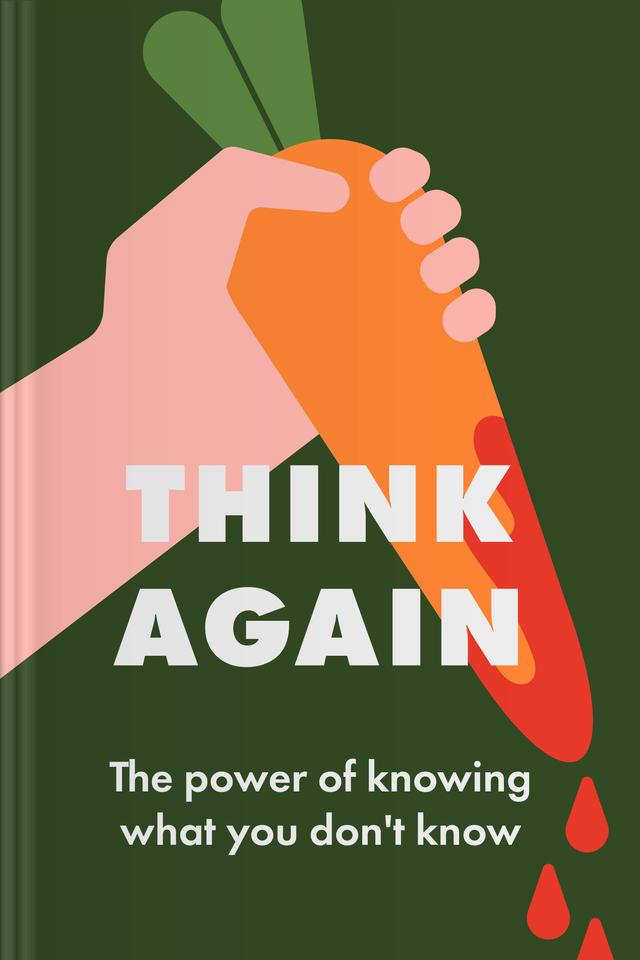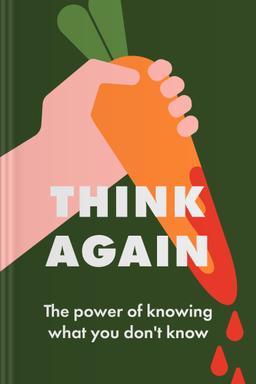You’ll learn
- Why you should base arguments on facts, not emotions
- To admit your mistakes and grow from them
- How to see different facets of the same issue
- To accept what your opponent can teach you
Protect the world’s peace. Donate to support Ukraine

first KEY POINT
Most of us think based on assumptions, habits, and instincts that have formed our sense of self. Questioning these beliefs is difficult for many because we are shedding a part of our identities. But the development path requires we amend our mental constitutions to allow open-mindedness.Cognitive Laziness causes the first instinct fallacy. It is a phenomenon when one gets an answer wrong on the first attempt. Out of 1500 students tested in Illinois, 50% changed their answers from wrong to right, while only 25% changed from right to wrong. This result demonstrates that p eople who rethink their solutions tend to improve their scores.
Our desire for predictability makes us resist rethinking. To prevent our identities from being threatened, we avoid reconsidering what we deeply believe because it makes us feel as if something fundamental in us cracks.We embrace rethinking when it concerns our possessions. We buy new clothes, renovate our houses, and update our cell phones. Why can't we apply the same principle to our thought patterns? We won't use Windows 95 but will stick to ideas we formed in 1995.Like a frog in lukewarm water that is gradually heated, we often fail to rethink situations until it is too late. Guess what? The frog story is in valid, but we believe it to be true. A frog dropped in hot water will not leap out of it because it will be badly burned immediately but it can escape lukewarm water when it gets uncomfortable. So, it is not the frog that cannot rethink. We are the ones who often fail to question these stories.Got it? Stay tuned to uncover more cognitive tricks!
second KEY POINT
Psychologist Phil Tetlock found that we slip into three major modes as we think and talk:• Preacher mode (when expressing our core beliefs)
• Prosecutor mode (when examining other people's opinions)
• Politician mode (when we want to promote ideas that we support)But there is a fourth mode we all need to engage in to become rethinkers. It is the scientist mode.Being a scientist means possessing a specific skill set and a unique frame of mind. Fortunately, the scientist mode of thinking is not reserved for the laboratory alone. Anybody can learn to think this way.There was an experiment with over 100 Italian business founders that cut across different domains. The researchers divided them into two groups. One group received training in the scientific mode of thinking, while the other group did not. The scientific group pivoted numerously and earned 40 times more than the second group, which stuck to the “normal” way of doing business.However, sticking to one way of thinking requires serious self-control. Sometimes even professional scientists need help to do this. For example, they enter preacher mode to promote their pet theories. Also, occasionally they abandon accuracy for what is popular (politician mode) and can be hellbent on debunking ideas that disagree with theirs (prosecutor mode). Surprisingly, people with high IQs have more difficulty updating their beliefs. Once, math whizzes who were either liberal or conservative were told to analyze data on ideological issues that activate strong emotions. Each group failed to see evidence that contradicted their existing beliefs.When people think in scientific mode, they do not allow ideas to become ideologies. They teach from evidence rather than preach from intuition. They lead with quizzes and puzzles instead of answers and solutions.

Continue reading with Headway app
Continue readingfirst KEY POINT
second KEY POINT
third KEY POINT
fourth KEY POINT
fifth KEY POINT